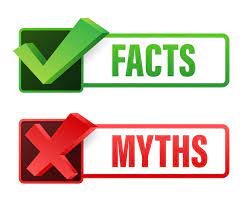Here are 10 more myths and facts about CKD.
Does CKD run in families?
Myth 1: CKD is not hereditary.
Fact: CKD can have a genetic component. Some forms of CKD can be passed down through families. It’s essential to be aware of your family’s medical history and discuss any concerns with your doctor. The only common hereditary cause is polycystic kidney disease (PCKD).
CKD is curable like alot of diseases
Myth 2: CKD is curable.
Fact. Chronic kidney disease is not curable. However, progression of the disease to kidney failure can be slowed, especially if it is detected early. Kidney failure is not inevitable. In fact, few patients with CKD get kidney failure (CKD5).
However, if CKD progresses to kidney failure, either dialysis or kidney transplant will be necessary.
Kidney failure occurs if one kidney fails
Myth 3: Kidney failure can occur if one kidney fails.
Fact: No. Kidney failure occurs only when both kidneys fail. In most cases, affected individuals may not manifest any problem if one kidney fails completely; and in such cases, the values of blood creatinine level will be normal.
People can have one or three kidneys and that’s serious
Myth 4. One in 1000 people are born with one kidney. A few have three kidneys or other normal variants. There are quite a few ‘plumbing’ differences inside humans, with regard to the urinary tract.
Fact. Neither usually lead to CKD, let alone kidney failure (CKD5).
Does oedema (swelling) mean you have kidney failure?
Myth 5: In kidney disease, the presence of oedema suggests kidney failure.
Fact: No. In certain kidney diseases, oedema (swelling, that usually starts in the legs) is present, but kidney function remains normal (e.g. nephrotic syndrome). Oedema is simply a manifestation of altered fluid metabolism in the body, and one of the common causes of such a manifestation, is CKD. But there are other causes: some not serious (drug side-effects) and some more serious (e.g. heart, lung, liver or bowel failure).

Do all people with CKD have oedema (swelling)?
Myth 6: Oedema is present in all patients with kidney failure.
Fact: No. Oedema is present in the majority of patients with kidney failure, but not in all. A few patients do not have oedema even in advanced stages of kidney failure. So the absence of oedema does not necessarily rule out kidney failure.
Continuing tablets for CKD
Myth 7: I feel fine, so I don’t need to continue treatment for my kidney problem.
Fact: Many patients with CKD feel very well with proper therapy, and so they may discontinue prescribed medications and dietary restrictions. Discontinuation of therapy in CKD can be dangerous; as it can lead to rapid worsening of kidney function leading to earlier requirement for initiation of dialysis or a kidney transplant.
My blood creatinine is slightly above normal
Myth 8: My blood creatinine level is slightly above normal. But I am perfectly well so there is nothing to worry about.
Fact: Even mild increases in serum creatinine can be a sign of kidney dysfunction and needs further attention. A variety of kidney diseases can damage the kidneys, so the nephrologist should be consulted without delay.
When dialysis starts, is it permanent?
Myth 9: Dialysis performed once in patients with kidney failure, will subsequently become a permanent.
Fact: No. There are many factors that dictate whether or not dialysis requirement is permanent or temporary.
Acute kidney injury (AKI; rapid onset kidney failure) is usually temporary and a reversible type of kidney failure. A few patients with AKI will require dialysis for a short period of time (normally 1-3 weeks). With proper treatment and few dialysis sessions, the kidneys usually recover completely in AKI (or go back to their baseline function). Delay in dialysis because of fear of permanent dialysis can be life threatening.
CKD can cause a progressive and irreversible type of kidney failure. Advanced stage chronic kidney disease (CKD5, kidney failure) requires regular and lifelong dialysis, or a kidney transplant, or supportive care (no dialysis/transplant).
Does dialysis cure kidney failure?
Myth 10: Dialysis cures kidney failure.
Fact: No, dialysis does not cure kidney failure. Doctors consider that dialysis is a ‘renal (kidney) replacement therapy (RRT)’ – as is a kidney transplant. Dialysis is an effective and life saving treatment in kidney failure; which removes waste products, excess fluid and corrects electrolytes, as well as the balance of acid and alkali in the blood.
If such substances accumulated in a patient, it can lead to death. Dialysis carries out the function that kidneys are no longer capable of doing. It prolongs survival in most patients with kidney failure (CKD5).
Last Reviewed on 4 April 2024
